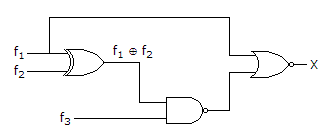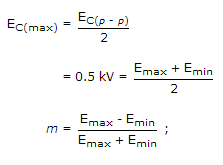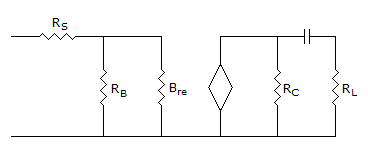Electronics and Communication Engineering - Exam Questions Papers
Exercise : Exam Questions Papers - Exam Paper 1
- Exam Questions Papers - Exam Paper 12
- Exam Questions Papers - Exam Paper 22
- Exam Questions Papers - Exam Paper 21
- Exam Questions Papers - Exam Paper 20
- Exam Questions Papers - Exam Paper 19
- Exam Questions Papers - Exam Paper 18
- Exam Questions Papers - Exam Paper 17
- Exam Questions Papers - Exam Paper 16
- Exam Questions Papers - Exam Paper 15
- Exam Questions Papers - Exam Paper 14
- Exam Questions Papers - Exam Paper 13
- Exam Questions Papers - Exam Paper 1
- Exam Questions Papers - Exam Paper 11
- Exam Questions Papers - Exam Paper 10
- Exam Questions Papers - Exam Paper 9
- Exam Questions Papers - Exam Paper 8
- Exam Questions Papers - Exam Paper 7
- Exam Questions Papers - Exam Paper 6
- Exam Questions Papers - Exam Paper 5
- Exam Questions Papers - Exam Paper 4
- Exam Questions Papers - Exam Paper 3
- Exam Questions Papers - Exam Paper 2
16.
Find 'X' in the circuit below :

f1(A, B, C, D) = Σ(6, 7, 13, 14);
f2(A, B, C, D) = Σ(3, 6, 7);
f3(A, B, C, D) = Σ(5, 6, 7, 14, 15)

f1(A, B, C, D) = Σ(6, 7, 13, 14);
f2(A, B, C, D) = Σ(3, 6, 7);
f3(A, B, C, D) = Σ(5, 6, 7, 14, 15)
Answer: Option
Explanation:
f1(A, B, C, D) = ∑(6, 7, 13, 14)
f2(A, B, C, D) = ∑(3, 6, 7)
f1 ⊕ f2 = ∑(3, 13, 14)
f3 x (f1 ⊕ f2) = ∑(14) = y
X = f1 x y ⇒ ∑14.
17.
Suppose that the modulating signal is m(t) = 2cos (2pfmt) and the carrier signal is xC(t) = AC cos(2pfct), which one of the following is a conventional AM signal without over modulation?
Answer: Option
Explanation:


(C) is without over modulation.
18.
What are the values of Emax and Emin displayed on the oscilloscope, when a 1 kV P-P carries is modulated to 50%?
Answer: Option
Explanation:

Emax - Emin = 0.5 x 1 kV = 0.5 kV
2Emax = 1.5 kVi, Emax = 0.75 kV
Emin = 0.25 kV.
19.
Consider the common emitter amplifier shown below with the following circuit parameters: β = 100, gm = 0.3861 A/V, r0 = ∞ rp = 259 Ω, Rs = 1 kΩ, RB = 93 kΩ, RC = 250 Ω, RL = 1 kW, C1 = ∞ and C2 = 4.7mF.

The resistance seen by the source Vs is

The resistance seen by the source Vs is
Answer: Option
Explanation:
Zs = Rs + (RB || Brs)
rc = 2.475 = 1.258 kV

20.
As the temperature increases the mobility of electrons __________ .
Answer: Option
Explanation:
Mobility of electrons 
m = 2.5 for electrons and 2.7 for holes in Si.
Quick links
Quantitative Aptitude
Verbal (English)
Reasoning
Programming
Interview
Placement Papers
